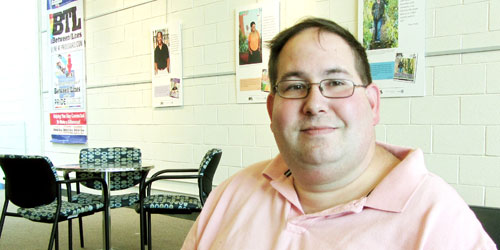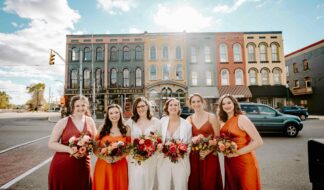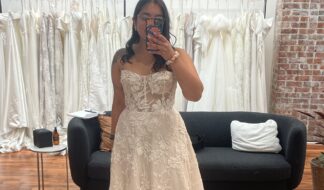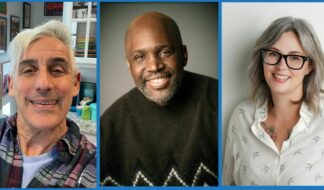
When Jeffrey Oliver sought community, comfort and advice through a support group for disabled individuals, he instead faced the judgment and critique of others. "They said that being gay was part of the problem," Oliver said. "Another person said, 'You should go to church. You can be healed.'" One man persistently took an interest in "saving" him, and was ultimately removed from the group because he would not stop. "It made me feel bad, and it made it difficult for me to get the help I was going there for."
This and other negative experiences prompted him to start the Disability Support Group at Affirmations Community Center last February.
"It can be a bad experience to be part of a therapy group with straight people because LGBT people have more difficult issues than just their disability. They may need help coming out, they may have pressures at school, and they may have discrimination for their disability or for being gay. Straight people may not understand and you don't know how they are going to react."
Benefits Challenge
Oliver was not only chastised at his support group. The road to getting disability benefits has been disheartening as well. He had been working in fast food management when problems with his sciatic nerve continued to get worse until he could no longer stand or sit for long periods of time. He also suffers from clinical depression, Type 2 Diabetes and obesity. He said that the sciatic nerve issue gives him problems with his back and ankles, and he often has to use a walker.
When he applied for disability three years ago, he was denied. "Social Security asked me to see one of their doctors, a psychiatrist. They asked me a lot of personal questions. When they asked about relationships I mentioned to her that I was gay. The whole atmosphere changed. She got angry. She started slamming things around the room and said, 'You need to go. Hopefully Easter Seals can give you some help.'"
Then, during a videoconference with a judge about his case, Oliver said that the judge denied his claim because of being gay. "The Judge was very inappropriate. He used being gay as one of the reasons that I have depression. It was so wrong. Being gay is not a disability. Who you are is not a mental illness."
The appeal process continues. In the meantime Oliver has relied on his parents for support and taken up activities at Affirmations to keep positive energy flowing in his life. He volunteers at the desk and leads both the Men's group and the Disability Support Group.
"A great mentor of mine told me one time, 'I cannot dunk a basketball. No matter how hard I try I am not tall enough.' There are things that we just cannot do, but I focus on the things that I can. One thing I focused on being able to do is volunteer here. This has given me a feeling like I'm working. You see a lot of older people or disabled people doing word searches and crosswords. That's because they help to keep the mind going. You need to use it or you lose it. Volunteering helps me keep skills going," Oliver reflected.
He chose Affirmations for the support group because of the atmosphere and the accessibility. "At Affirmations the staff here have been supportive and treated me as an equal. They were very supportive of me starting the group here and helped me get it going. I really wish the rest of the world would be like that," Oliver said.
"It's also a handicapped accessible place. There is an elevator to take us up to the meeting rooms. There are buttons on the doors (to open them). Disabled people can attend any group and volunteer and they will accommodate their needs. Affirmations helps build people's self-esteem and helps them get support."
He also noted that Affirmations has information on resources, including those for people with mental and physical health problems. There is also a counseling program, an annual health fair, a transgender health fair and other support groups and classes.
Group Info
The LGBT Disability Support group has about 20 members, with usually 5-15 people attending a given meeting. Attendees have a wide range of challenges, from mental health issues to physical disabilities. They discuss the challenges they face and share resources for care and support. They meet on the 2nd and 4th Wednesday of each month from 1-3 p.m. For more information, contact Oliver at [email protected] or visit http://www.goaffirmations.org and visit their health page.










